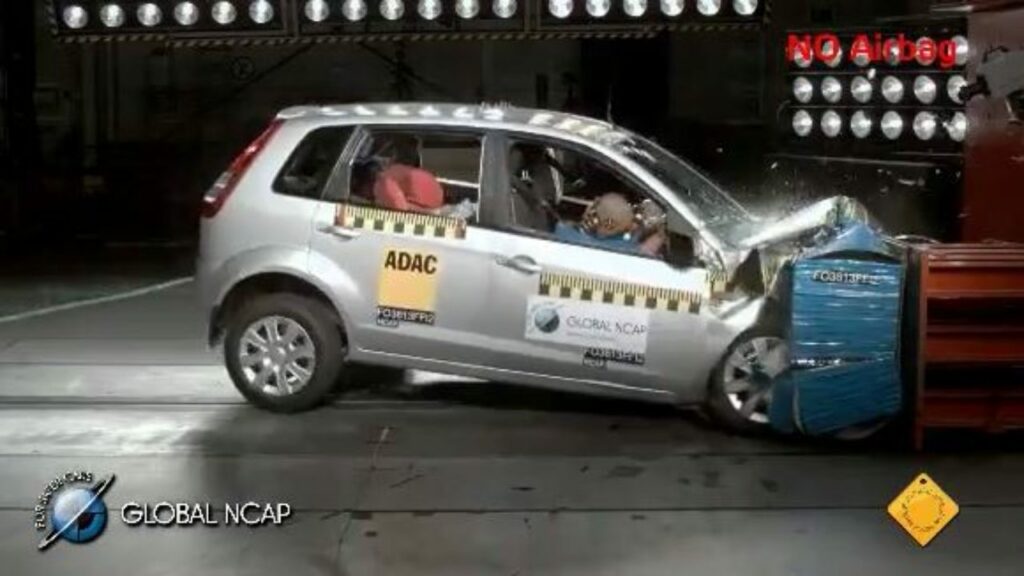In a notification last week, the Ministry of Road Transport and Highways said that from October 1, cars manufactured in India as well as imported ones will be given star ratings based on their performance in crash tests.

Implementing Bharat-NCAP
The notification reads that the ‘Bharat New Car Assessment Programme’ (Bharat-NCAP) will be applicable on vehicles of category M1 with gross weight less than 3.5 tonne.
Basically, this category includes motor vehicles used for the carriage of passengers, comprising not more than eight seats, in addition to the driver’s seat.
It appears that this programme is designed to provide a fair, meaningful and objective assessment of crash safety performance of cars on the basis of standard laboratory tests.
This helps in providing the guidelines and mechanisms to inform consumers about the assessment.
Moving ahead, the notification reads, “Bharat-NCAP shall be a voluntary programme, except otherwise stated in the vehicle selection guideline monitored by the ministry.”
How Does It Work?
The whole assessment is based on the performance of the vehicle model when evaluated under three areas including Adult Occupant Protection; Child Occupant Protection; and Safety Assist Technologies.
There are individual tests and assessments for each of the assessment areas.
This simply means that Bharat-NCAP will award separate ratings for the new vehicle for Adult Occupant Protection and Child Occupant Protection on the basis of performance in full vehicle crash tests and score achieved and fitment of safety assist technologies, as per the final draft.
The policy specifies three crash tests that need to be performed on the new car for the assessment of star rating.
It includes Offset Deformable Barrier Frontal Impact Test, Side Impact Test and Pole Side Impact Test.
With the implementation of BNCAP, the ministry is introducing the concept of safety rating of passenger cars, according to an official.
Adding, “It empowers consumers to make informed decisions. It will ensure structural and passenger safety in cars and will promote export worthiness of the cars produced in the country and increase the domestic customer’s confidence in these vehicles. Additionally, the programme will encourage manufacturers to provide advanced safety technologies to earn higher ratings.”
It is noteworthy here that these ratings will not impact the cost of automobiles, an official said.
How Does The Bharat-NCAP Help?
With automobiles of higher rating, the number of deaths in road accidents is likely to reduce significantly.
Bharat-NCAP will serve as a consumer-centric platform allowing customers to opt for safer cars based upon their star-ratings, while promoting a healthy competition for manufacturing safer vehicles, said Nitin Gadkari, the Union minister for Road Transport and Highways while approving the policy, on June 24 last year.
According to him, the testing protocol of Bharat-NCAP will be aligned with global crash test protocols factoring in the existing Indian regulations to get their vehicles tested at India’s own in-house testing facilities.
The annual report ‘Road accidents in India, 2021’ indicates that at least 1.53 lakh lives were lost due to road accidents in India in 2021, the highest since 2011.
During this time, two-wheelers recorded the highest number of accidents (52,416) and death (22,786) followed by cars, taxis and vans.











